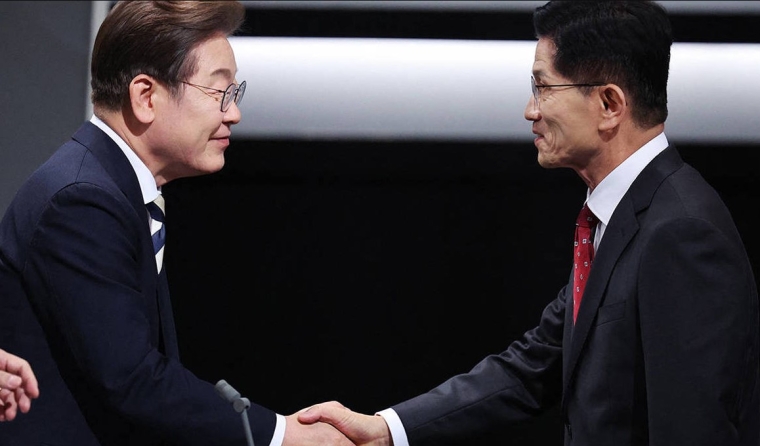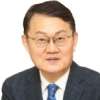
Few countries have transformed themselves as dramatically as South Korea has over the last half-century. A poor, authoritarian country with annual per capita income of less than US$400 has become a vibrant and prosperous democracy, with direct presidential elections, peaceful transfers of power, and a per capita income of more than $33,000. But South Korea lately has been grappling with slowing economic momentum, rising political instability, and an increasingly fragile security environment. Can the country transform itself again and meet these new challenges?
Begin with the economy. After decades of rapid GDP growth – averaging over 7% in the 1970s-1990s – the economy has slowed, growing by 2-3% in recent years. The growth rate is expected to fall further, to 1%, over the next decade.
A key reason for this is demographic decline. With South Korea’s fertility rate having dropped to just 0.75 – the world’s lowest – its population is shrinking and aging fast. The country is set to cross the “super-aged” threshold, with more than 20% of the population aged 65 and older, this year. Low productivity growth and high household debt are additional brakes on consumption and investment, increasing the risk of long-term stagnation, akin to Japan’s “lost decades.”
It does not help that China is becoming increasingly competitive in sectors that South Korea once dominated, such as shipbuilding, steel, smartphones, and, increasingly, semiconductors. More fundamentally, the export-driven model that fueled South Korea’s past success is now vulnerable to protectionist trends and geoeconomic fragmentation.
Domestic political volatility has risen as well. Corruption scandals and partisan gridlock persist, and both Freedom House and the Economist Intelligence Unit have reported signs of democratic backsliding. Former President Yoon Suk-yeol’s attempt to impose martial law for the first time since 1980 revealed that South Korea’s democracy remains fragile, though the fierce backlash – including popular protests and a vote by the National Assembly to rescind the declaration – also highlighted the resilience of public support for democratic institutions.
Mounting security risks further complicate the picture. North Korea, bolstered by deepening military ties with Russia and an enduring strategic alignment with China, has continued its regular provocations, including ballistic-missile tests. Meanwhile, South Korea is grappling with the question of how to approach the escalating geopolitical competition between China, with which the country maintains close economic ties, and the United States, an increasingly unreliable ally.
US President Donald Trump’s past threats to scale back America’s security commitments and cut deals with North Korea have revived calls within South Korea for an independent deterrent capability. Recent polls indicate that a growing share of South Koreans want their country to develop nuclear weapons. While the government remains committed to non-proliferation, the pressure for South Korea to ensure its own security is intensifying.
Against this backdrop, South Korea will hold its next presidential election on June 3. Whoever wins – whether the progressive or conservative candidate – will have to confront head-on the intertwined challenges of boosting economic growth, implementing democratic reforms, and providing strategic clarity.
On the economy, a top priority must be shifting from export-led to innovation-led growth. This will require major investments in research and development, as well as support for startups in frontier industries such as AI, biotechnology, green energy, and digital health care. It will also require continued industrial policies in key sectors (especially semiconductors, electric vehicles, and batteries), together with regulatory streamlining. Revitalising the underperforming service sector – especially through structural reform and digitalisation – can unlock potential growth and help reduce inequality.
Labour-market reform is also essential. Policymakers must tackle two features of South Korea’s labour market that are undermining productivity and inclusion: its dual structure (“regular” workers enjoy more job security, better benefits, and higher wages than their “non-regular” counterparts) and its focus on seniority, rather than performance, in determining wages. To help offset demographic decline, policies aimed at boosting female labour-force participation, attracting skilled immigrants, and retaining older workers are also needed. For example, the government could promote lifelong education and more flexible work arrangements.
As for democratic reforms, South Korea’s next president should focus on measures to strengthen the National Assembly’s legislative capacity, uphold judicial independence, and foster a civil society and media culture resilient to polarisation and disinformation. The next administration might even consider pursuing constitutional reform, to allow presidents to serve up to two four-year terms (rather than one five-year term). Above all, the winner must demonstrate a commitment to restraint, institutional integrity, and inclusive governance, especially by rejecting winner-takes-all politics and engaging constructively with the opposition.
Finally, to strengthen South Korea’s security posture, the next administration should reiterate its commitment to the alliance with the US, while seeking stronger security guarantees – possibly including deployment of nuclear weapons. It should maintain and deepen trilateral security cooperation with the US and Japan, particularly on missile defense and intelligence.
At the same time, South Korea should pursue greater strategic autonomy. While it must uphold all alliance commitments vis-à-vis China, it should limit participation in anti-China initiatives and maintain an open economic dialogue with the People’s Republic. As for North Korea, any engagement should hinge on a credible, fundamental change in the regime’s behavior.
South Korea has shown a remarkable capacity for renewal in the past. With wise, unifying leadership that delivers a forward-looking vision that addresses economic vulnerabilities, bridges political divides, and strengthens national security, this time will be no different.
Lee Jong-Wha, Professor of Economics at Korea University, is a former chief economist at the Asian Development Bank and a former senior adviser for international economic affairs to the president of South Korea. (c) 2025 Project Syndicate. Used here with permission.

We welcome your comments below. If you are not already registered, please register to comment
Remember we welcome robust, respectful and insightful debate. We don't welcome abusive or defamatory comments and will de-register those repeatedly making such comments. Our current comment policy is here.